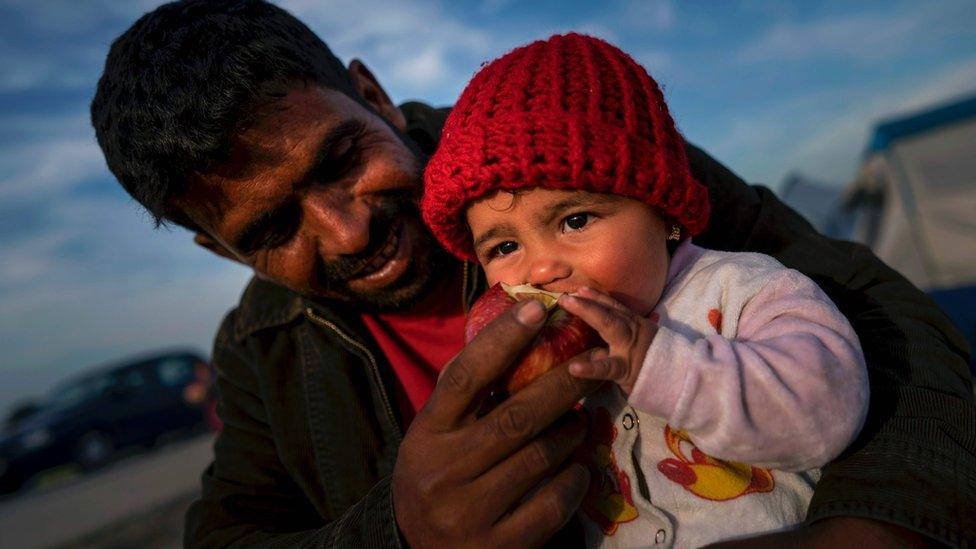Turkey 'needs to fulfil deal' to gain visa-free EU travel
- Published
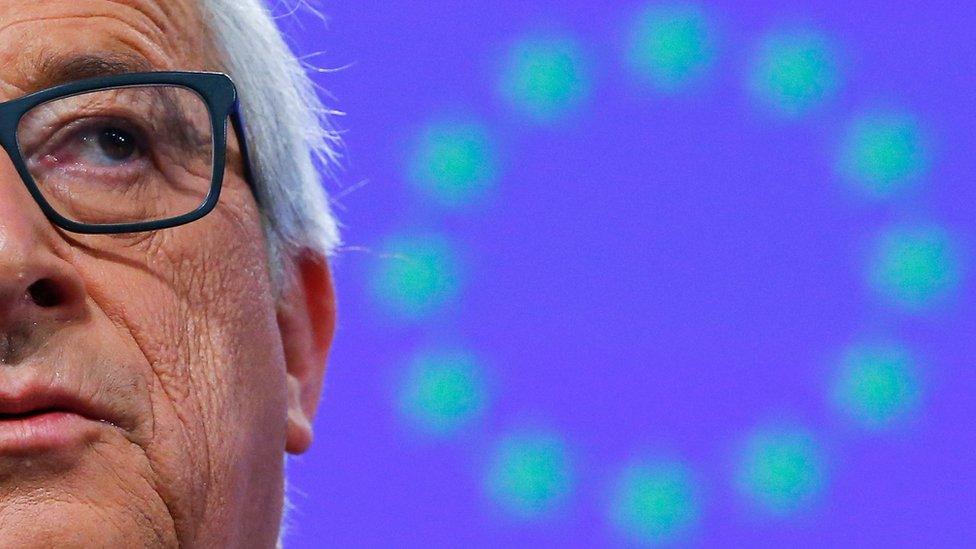
Mr Juncker has warned that Turkey needs to meet criteria in landmark migrant deal
A deal to allow Turks visa-free travel within Europe will collapse if Turkey does not fulfil its commitments, the European Commission president has said.
Jean-Claude Juncker said changes to Turkey's laws on terrorism were one of a number of conditions that needed to be met for visa liberalisation.
President Recep Tayyip Erdogan has refused to do so, and has now accused the EU of "hypocrisy".
The visa issue is part of a deal aimed at easing Europe's migration crisis.
"We consider that it is important for these conditions to be fulfilled. Otherwise, this deal between the EU and Turkey will not happen," Mr Juncker said.
"If Mr Erdogan decides to deny Turks the right to free travel to Europe, then he must explain this to the Turkish people. It will not be my problem, it will be his problem", he also said.
What is the Schengen agreement?
Turks look to EU to scrap visas
In a fierce speech, Mr Erdogan reacted angrily to the European demands, saying: "Since when are you running this country? Who has given you the authority?
"They believe they have a right for themselves (to fight terror) but find it a luxury and unacceptable for us. Let me say it clearly - this is called hypocrisy."
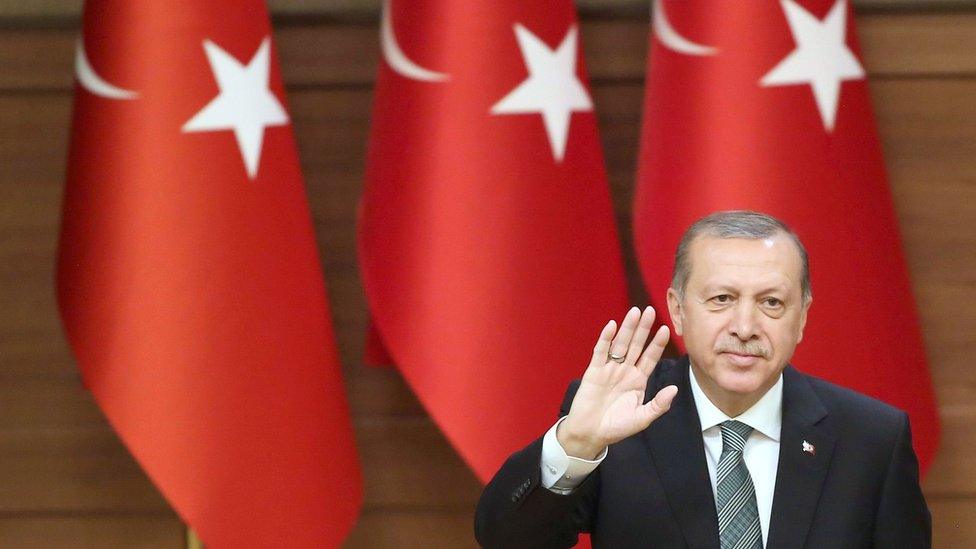
Mr Erdogan has said Turkey will not change the country's laws to meet the migrant agreement
The EU and rights groups have accused Ankara of using its broad anti-terror legislation to intimidate journalists and stifle dissent.
But the government denies it, saying it needs the laws to fight militants, and has warned the EU that it will not change them.
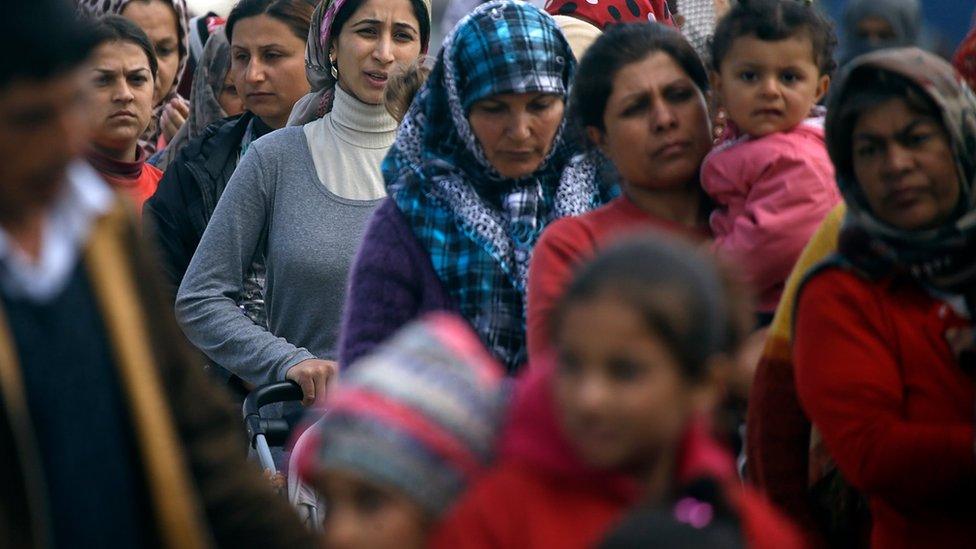
Deal with Turkey was aimed to reduce the influx of migrants into Europe
There are fears the whole migrant deal could collapse if the visa dispute is not resolved.
The agreement was largely negotiated by outgoing Turkish Prime Minister Ahmet Davutoglu.
Mr Juncker said that Mr Davutoglu's departure could not jeopardise what had been previously agreed.
"We are counting on this, we agreed this with the Turkish government and it can't be that the exit of the prime minister leads to agreements between the EU and Turkey being ignored," he said.

Five benchmarks still to be met by Turkey:
Corruption: Turkey must pass measures to prevent corruption, in line with EU recommendations
Data protection: It must align national legislation on personal data protection with EU standards
Europol: An agreement is to be concluded with the continent's law enforcement agency
Judicial cooperation: It must work with all EU members on criminal matters
Legislation on terrorism: Turkey is also required to bring its terror laws in line with European standards

Under the EU-Turkey agreement, external, migrants who have arrived illegally in Greece since 20 March are to be sent back to Turkey if they do not apply for asylum or if their claim is rejected.
For each Syrian migrant returned to Turkey, the EU is to take in another Syrian who has made a legitimate request.
Turkey has already threatened to stop taking back migrants from Greece if the EU fails to deliver on the visa issue.

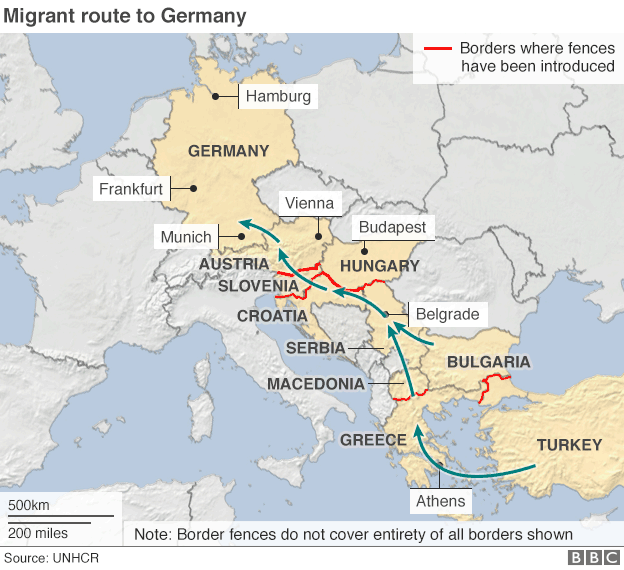
A note on terminology: The BBC uses the term migrant to refer to all people on the move who have yet to complete the legal process of claiming asylum. This group includes people fleeing war-torn countries such as Syria, who are likely to be granted refugee status, as well as people who are seeking jobs and better lives, who governments are likely to rule are economic migrants.
- Published4 May 2016
